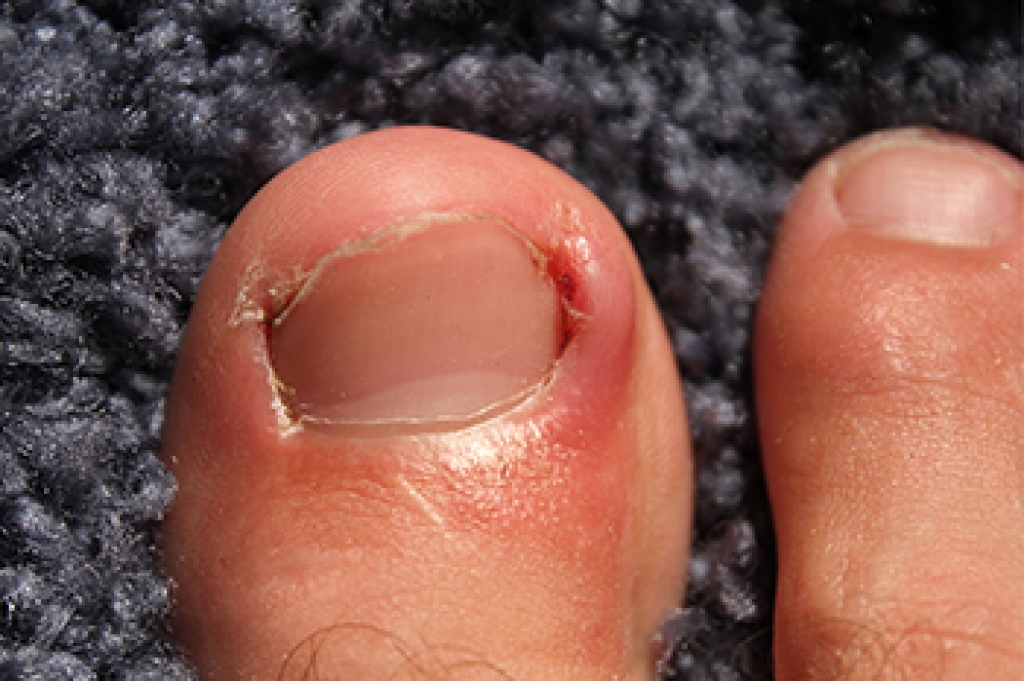
Ingrown toenails are painful foot problems, and can disrupt your daily life, leading to discomfort. Understanding the causes behind them is crucial for prevention and effective management. A common culprit is improper toenail trimming. Cutting nails too short or rounding the edges can encourage them to grow into the skin. Tight-fitting shoes or socks can also compress the toenails, increasing the likelihood of inward growth. Trauma, such as stubbing your toe, also can distort the nail's growth pattern. Additionally, inherited factors and genetics can predispose some individuals to ingrown toenails. Infections and fungal conditions can further exacerbate the problem. It is essential to maintain proper nail care, wear well-fitting footwear, and address any foot issues promptly to reduce the risk of ingrown toenails and enjoy pain-free feet. If you have developed an ingrown toenail, it is suggested that you are under the care of a podiatrist who can provide you with relief and treatment options.
Ingrown toenails may initially present themselves as a minor discomfort, but they may progress into an infection in the skin without proper treatment. For more information about ingrown toenails, contact Steven Wolfington, DPM of Sheboygan Foot Care, LLC. Our podiatrist can provide the care you need to keep you pain-free and on your feet.
Ingrown Toenails
Ingrown toenails are caused when the corner or side of a toenail grows into the soft flesh surrounding it. They often result in redness, swelling, pain, and in some cases, infection. This condition typically affects the big toe and may recur if it is not treated properly.
Causes
- Improper toenail trimming
- Genetics
- Improper shoe fitting
- Injury from pedicures or nail picking
- Abnormal gait
- Poor hygiene
You are more likely to develop an ingrown toenail if you are obese, have diabetes, arthritis, or have any fungal infection in your nails. Additionally, people who have foot or toe deformities are at a higher risk of developing an ingrown toenail.
Symptoms
Some symptoms of ingrown toenails are redness, swelling, and pain. In rare cases, there may be a yellowish drainage coming from the nail.
Treatment
Ignoring an ingrown toenail can have serious complications. Infections of the nail border can progress to a deeper soft-tissue infection, which can then turn into a bone infection. You should always speak with your podiatrist if you suspect you have an ingrown toenail, especially if you have diabetes or poor circulation.
If you have any questions, please feel free to contact our office located in Sheboygan, WI . We offer the newest diagnostic and treatment technologies for all your foot care needs.
